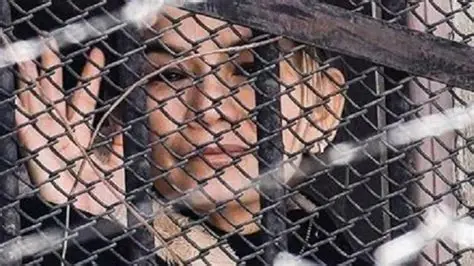The Supreme Court of Justice (TSJ) of Bolivia ordered the immediate release of former de facto president Jeanine Áñez, overturning the 2022 sentence that condemned her to 10 years in prison in the case known as “Coup d’État II.”
The decision, adopted through an extraordinary review process, acquits Áñez of the charges of issuing resolutions contrary to the Constitution and the laws, and dereliction of duty, related to her proclamation as president in November 2019 following the forced resignation of President Evo Morales.
According to Supreme Court President Romer Saucedo, the decision was based on the principle of retroactivity of the more lenient criminal law, given that the criminal offense for which she was convicted underwent subsequent modifications.
“The annulment of the sentence, the acquittal of Ms. Áñez, and the corresponding order of release are being issued,” declared Judge Carlos Ortega, president of the Criminal Chamber of the Supreme Court. This ruling removes the only remaining obstacle to her release, as the former president had previously obtained procedural benefits in other criminal cases.
“The sentence against her has been overturned, based on arguments such as the retroactive application of the law, given that the criminal offenses related to resolutions contrary to the Constitution and the laws were modified at the time,” Saucedo explained.
Jeanine Áñez, a former senator for the department of Beni, assumed the de facto presidency of Bolivia on November 12, 2019, following the coup against former president Evo Morales and governed until November 7, 2020. She has been in prison since March 2021, when she was arrested in the city of Trinidad and sent to Miraflores prison in La Paz.
The appeal was filed on September 19, 2025, and the Supreme Court admitted it on October 1. The full bench of the Supreme Court, invoking Articles 184.7 of the Political Constitution of the State, 38.6 of the Organic Law of the Judiciary, and 424.2 of the Code of Criminal Procedure, ordered the acquittal of Áñez and the immediate issuance of a release order, provided she is not currently imprisoned for another crime.
In 2019, Áñez issued Supreme Decree 4.078 to exempt from responsibility the military and police officers who, during her presidency, perpetrated the Senkata (La Paz) and Sacaba (Cochabamba) massacres, in which 36 people were killed.
In this context, David Inca, representative of the victims of Senkata, rejected the Supreme Court’s ruling issued today, stating that it “has a bias in favor of a particular person and ideology, and completely disregards the victims.”
He recalled that during the Áñez administration, “there were tortures, massacres, and human rights violations,” according to a report by the Inter-American Commission on Human Rights (IACHR). “There is a crime of dereliction of duty and of issuing resolutions contrary to the Constitution,” Inca insisted.
The Supreme Court ruling, published in its final version and notified through the Digital Citizen’s Mailbox, was signed by a majority of the justices, with dissenting votes from Justice Primo Martínez Fuentes and Justice Norma Velasco Mosquera.
The judicial decision also comes after the rise to power of right-wing politician Rodrigo Paz, who will be sworn in as the new president of Bolivia on November 8, after winning the second round of the presidential elections on October 19.
IMAGE CREDIT: The Supreme Court of Justice of Bolivia ordered the immediate release of former president Jeanine Áñez after overturning her conviction in the “Coup d’État II” case. Photo: EFE
[ SOURCE: teleSUR ]

